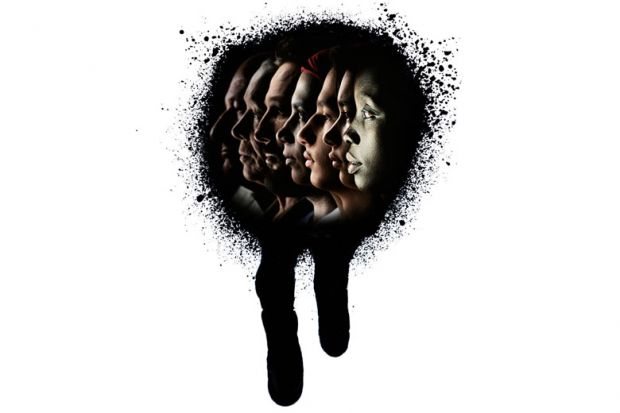As I followed the debate during the 2022 World Cup on whether Moroccan football fans see themselves as Africans, I could not help but be reminded of the ethnic paradoxes that exist among academics from the African diaspora in the UK. I hate to be the one to rock the boat, but I am just going to come out and say it: I am an academic. Why do I have to be a “Black academic”?
Until recently, no academic in the UK thought much about ethnic or racial labels. Now, I am hearing constant references to labels that include the term “Black”, such as Black scientists, Black researchers, Black professors, Black academics and Black thinkers. Racial labelling is on the rise as universities, funding bodies and publishers look for ways to broadcast their commitment to equality, diversity and inclusion (EDI).
Is this simply a public relations exercise? Maybe. Does it help tackle ethnic inequalities in UK academia? I think not.
For one thing, the array of non-white academics working in UK universities today is extremely diverse, with ancestral links to all regions of the African continent, the Caribbean, north, central and south America, Asia, and the Indian and Pacific oceans. As a London-born academic of African heritage, I reject the cultural contortion that I have to perform to fit a label that not only ignores the differences between the 54 countries in Africa but appears to ignore the rest of the world entirely.
Venerating “Blackness” might seem empowering to minority groups that are vulnerable to historical stigmas associated with racial exploitation, discrimination and inequality. I get it – I really do. But use of the “Black” label hands cultural primacy within that group to those who have traditionally been identified in the West as “Black” (namely, African Americans and those in the UK with Caribbean heritage), inadvertently minimising the various cultural heritages of other ethnic groups – not least Moroccans and other North Africans. If we are not careful, this brand of colourism will create tensions over which group is the most “Black”.
Some blame the Americanisation of British higher education for ethnic labellism. This idea recently gained more traction after veteran US civil rights leader Jesse Jackson advocated for affirmative action in the UK. I have previously argued that it is time British academia abandoned affirmative action, and even one of its most prominent supporters, shadow foreign secretary David Lammy, does not believe it should just be based on ethnicity alone. In 2018, he argued that “it has to have a class component as well”.
The number of academics in British universities born to university-educated, middle-class parents of African heritage has been rising. Lumping such people with poor, first-generation Afro-Caribbean students from council estates will do nothing to improve EDI. Addressing deep-rooted inequalities in UK higher education requires an understanding of the particular condition of the disparate ethnic groups we are trying to help, such as class, parental education levels, socio-economic status and historical victimhood of slavery in the West.
But regardless of our ethnicity or background, we should be uneasy with the spread of any practice that defines an academic by their skin colour above everything else. A data-driven, colour-blind approach that allows us to learn more about who and how we need to help, while respecting others, is a fairer and, most importantly, less divisive way forward.
The real hostility to change comes from the British academic establishment. It’s an unfair generalisation but it has to be said: British university leaders are trapped in a mindset that can only be described as white saviour complex. Tragically, they have failed to notice the many changes that the African diaspora in the UK has undergone since photos of the 1983-85 famine in Ethiopia cemented the image (outdated even at the time) of helpless “Black people” in the perceptions of a generation of Westerners.
Senior managers argue that ethnic labelling aimed at giving visibility to BAME (Black, Asian and minority ethnic) or “Black” academics must be a good thing. No, it isn’t. Even the UK’s Commission on Race and Ethnic Disparities said in 2020 that “aggregate terms like BAME are no longer helpful and should be dropped”. Opposition to affirmative action, critical race theory and positive ethnic discrimination is bubbling up from the depths of social media; ethnic labelling could make our universities vulnerable to accusations that they are more supportive of “Black academics” than of other disadvantaged groups, which will only further embolden the attacks.
Moreover, well-intentioned university bureaucrats could inadvertently favour like-minded colleagues over others who object or remain silent, nurturing an obedient clique of self-describing “Black academics” who are reluctant to question the system that catapulted them up to the high table.
This would leave a large proportion of an already marginalised group of academics – those not considered “Black” enough, or those, like me, who object to positive ethnic discrimination on principle – disadvantaged and disgruntled.
To me, the situation is reminiscent of the social engineering of the African intelligentsia by colonisers, whereby an ambitious breed of native bureaucrats and managerial elites were selected to serve the ideological and political interests of the mother country. Our quest for ethnic equality in the modern UK surely deserves better than that.
Aymen Idris is senior lecturer in the department of oncology and metabolism at the University of Sheffield and founder and chair of the Africa in Science thinktank.
Register to continue
Why register?
- Registration is free and only takes a moment
- Once registered, you can read 3 articles a month
- Sign up for our newsletter
Subscribe
Or subscribe for unlimited access to:
- Unlimited access to news, views, insights & reviews
- Digital editions
- Digital access to THE’s university and college rankings analysis
Already registered or a current subscriber? Login








